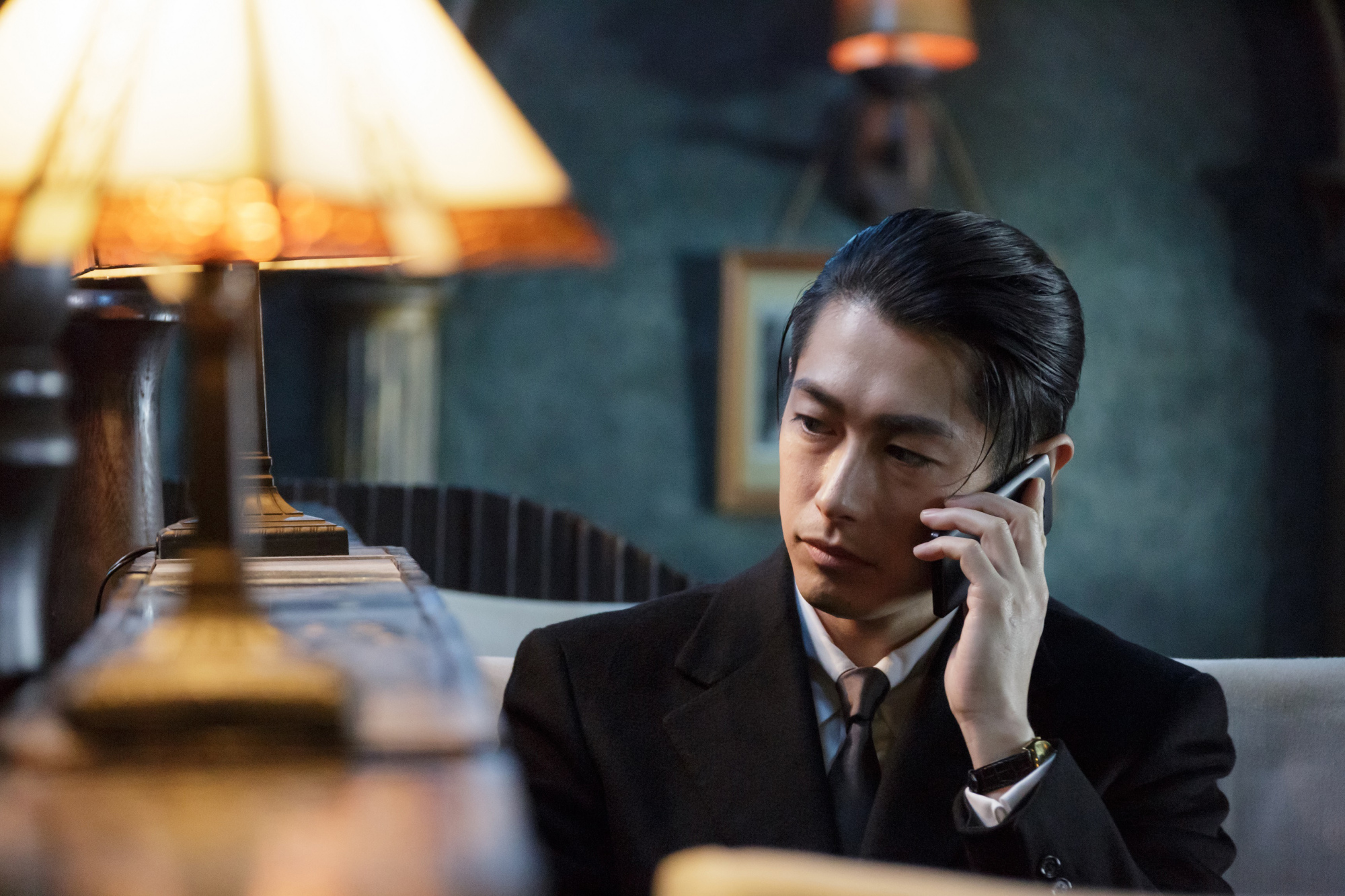Marriage scammers in the movies may be masters of deception, but their motives are usually clear enough. In Charlie Chaplin's "Monsieur Verdoux" (1947) the title character weds and murders widows to support his family. In Miwa Nishikawa's "Dreams for Sale" (2012), a husband and wife resort to serial marriage scams to replace their fire-ravaged restaurant.
The con man played by Dean Fujioka in Shinichi Nishitani's "Marriage" ("Kekkon") is harder to read. With his slick hair, pale complexion, chiseled features and sensitive air, Kenji Urumi looks like a cross between a host from a Shinjuku club and a tuberculosis-stricken poet from the Taisho Era (1912-26). His occupation is leading eligible women down the garden path to the altar and extracting money from them before the (permanently postponed) wedding.
The risks are big and the need is ... not clear. He lives in modest comfort with his oblivious wife Hatsune (Shihori Kanjiya), who never makes financial demands. What's his story?



















With your current subscription plan you can comment on stories. However, before writing your first comment, please create a display name in the Profile section of your subscriber account page.